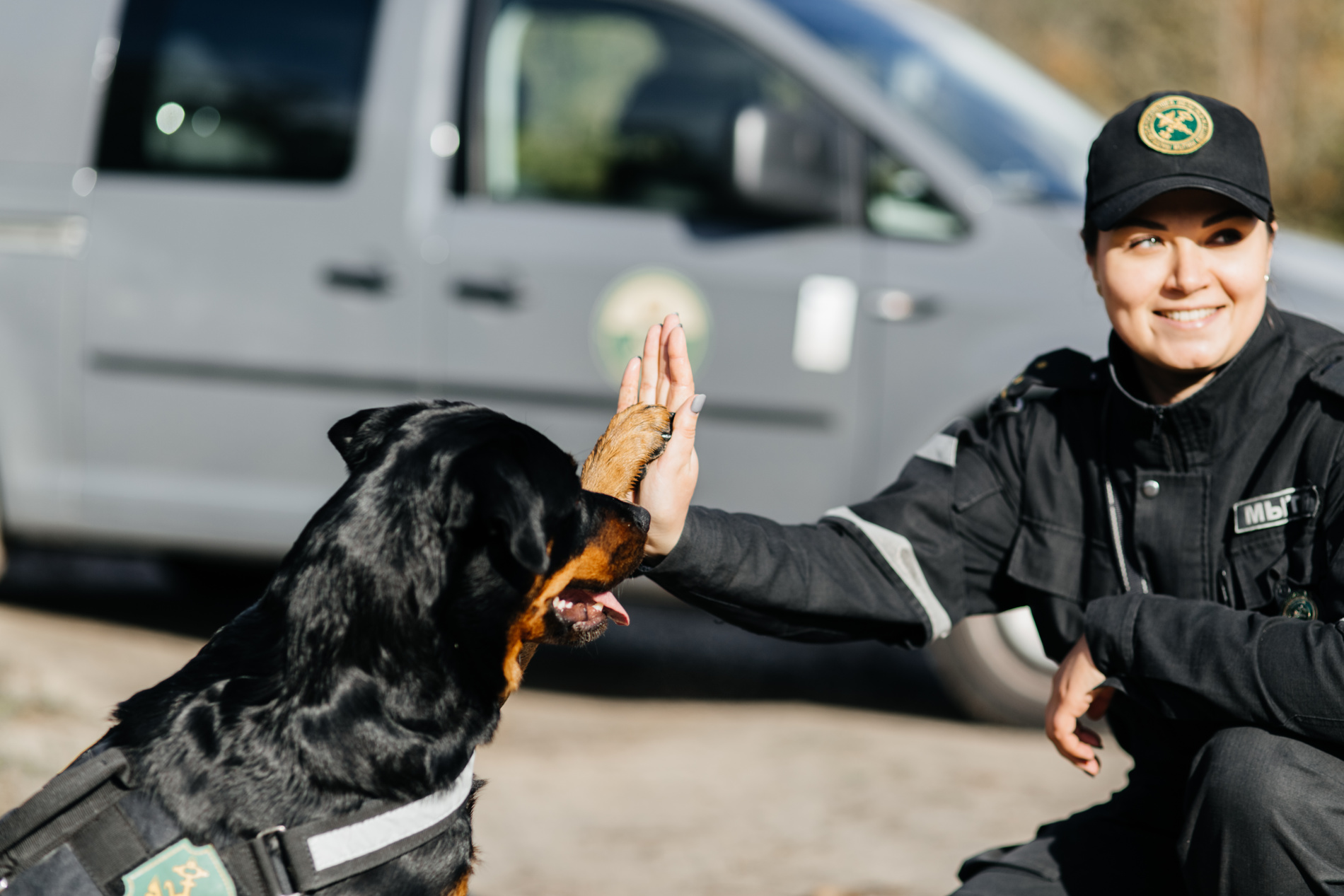
The cross-border projects are not just indicators, budgets, reports and payments. Although these are their inseparable elements, above all each project hides the specific ideas, values and dreams of people implementing it, as well as the stories of those who benefited from its implementation.
We want to bring some of them closer to you by the "Project stories" - the cycle which will present this more human (but also animal - as in the 1st episode) dimension of our selected projects. We invite you to read.
![]()
A shuttle bus arrived at the International Car Checkpoint "Brest". Passengers were slowly passing the customs control, it is a common procedure. But this time there was something exceptional:
a working dog named Kamelia put herself in a specific position.
- that was a signal about the possible presence of narcotics or psychotropic substances. In a few minutes the drugs were found in the pocket of one of the passengers in a closed zip pack. The sniff of a working dog met expectations, as always.
Black labrador-retriever has been working with Alexei Protopopov, the senior inspector of the canine department of the Brest Customs since 2018.
During this period, the inspector and his dog managed to uncover about 20 cases of drugs smuggling across the border. Few times the inspector and Kamelia were recognized as the best team of the year and became the winners of competitions in drugs detecting. The performance of their team is really impressive.
In recent years there has been an increase in the number of attempts of smuggling narcotic substances across borders, trafficking of these prohibited goods has usually international character. Therefore, the Belarusian and Polish customs services cooperate in fighting against such illegal actions. The Dogservice project supported solutions to these problems at the Belarusian-Polish border: sniffer dogs.
The sharp sniff of these dogs always allows for detecting drugs and psychotropics.
But it needs a lot of training and good working conditions for cynological services to prepare a dog for this unique and hard work.
The presence of mobile units of cynologists helps to reduce criminal activities in the border area and supports the overall security of people living in the region.
For this purpose, vehicles for transportation of service dogs and cynologists were purchased on both sides of the Belarusian-Polish border within the Dogservice project. All these cars were additionally equipped with inspection kits. Now, if the assistance from cynological services is urgently needed, they can be quickly delivered to inspection sites. Training for staff from both countries on how to share their experiences related to customs control with working dogs, dog care and working dog techniques has also been an important component of the project. Twenty canine specialists got training in Poland and Belarus on detecting tobacco products and drugs.
Thanks to the work of such service dogs as Kamelia, customs control procedure is accelerated, as well as transport queues are reduced.
Further cooperation between the cynological services of both countries will contribute to more efficient use of service dogs, development of their training methods and, in the end, the effectiveness of the border controls.
More information on the DOGSERVICE project can be found here.
Was this page useful?


